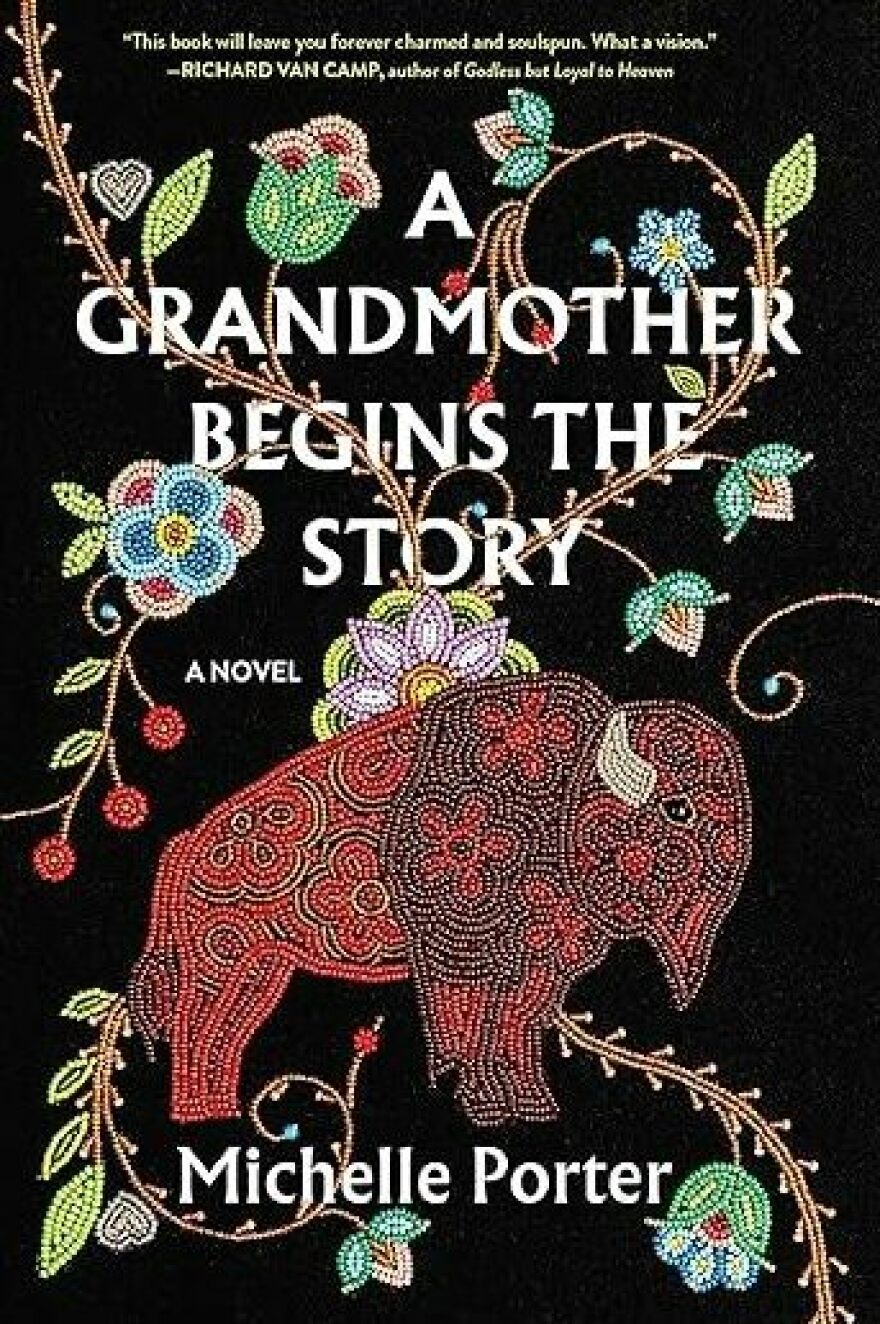Michelle Porter, Métis writer of poetry and prose, follows several women in the same family in her debut novel, A Grandmother Begins The Story.
In alternating chapters, the book gives voice to Mamé, who is dead and making her way through the spirit world; her daughter Geneviéve, who is in her 80s when she checks herself into a rehab center in the hopes of finally kicking her alcoholism; and Geneviéve's great-granddaughter Carter, who has just been contacted by her grandmother (Geneviéve's daughter Lucie) with a request to help kill her. Through these women's chapters, we learn of further relations like Velma, Genevieve's sister, a fiddler of great skill and passion who died young, and Allie, Lucie's daughter and Carter's mother, who gave Carter up for adoption as a baby. More tangentially, but still deeply connected through history and culture, is Dee, a bison we follow from the time she's a calf with a wandering mother to her own contentious motherhood.
Matriarchs are essential to the novel, which is structured like a tapestry, its various characters weaving through and around each other's stories. Carter, for example, the youngest character the novel closely follows, is herself a mother to Tucker, a little boy she's recently sent to live with his dad, Slavko. She keeps planning to go and get him, but then distracts herself with a new lover, a new adventure, or a renewed need to survive. It's not that she doesn't love him or wish to parent him — but she's unsure whether she's fit to do so. Having been given away by Allie and then adopted by a violent woman, R, Carter understandably has a difficult time trusting the institution of motherhood.
Even so, Carter keeps reaching out for connection to her birth mother's family, almost despite herself. She visits Allie and learns how to bead, and meets her half-sisters, the daughters Allie had later and kept. She agrees to help her grandmother Lucie die, too, but only on the condition that Lucie teach her a song and bring her to a Métis dance, where she experiences something profound:
None of the mothers in A Grandmother Begins The Story are perfect, but it's from these very imperfections that they draw their strength and figure out how to move forward, how to help the next generation, how to keep loving. The women's various traumas are always in the background of the novel — substance use disorders, parental neglect, physical and emotional abuse at the hands of men, and the colonial violence of language erasure are all gestured at in the characters' unfolding histories — but they are not the true center of their experiences. Geneviéve, for instance, has been an alcoholic for the better part of her life, but chooses to ask for help and become sober in her final days. While at the rehab center, Gen forges new relationships: with a man who may or may not be a spirit, with a young nurse, with another patient, and with the other residents who come to her for tarot readings. She finds, too, her younger sister, Velma, who visits her from the spirit world so the two can play music together like they once did, as a family.
Among the many joys to be found in Porter's book is the way she imbues everything in the world with aliveness. Dee the bison's chapters are sometimes narrated by the ground that holds her up; some chapters feature Gen's dogs, who seem to be spirits far older and more complex than their bodies might suggest. But such aliveness goes beyond the clarity of plant and animal matter. As Gen remembers her auntie saying, "your spirit could rub off on things and make them halfway living." One of the book's sweetest climactic chapters comes in the voice of her elderly yet sturdy car, Betsy.
Porter uses a quote from a new Indigenous-led opera, Li Keur: Riel's Heart of the North, written by Dr. Suzanne M. Steele, as her epigraph. Its last line reads: "we women, this is what we do: sew and smudge, make the ugly, beautiful." Porter has, indeed, done exactly this in her debut, creating beauty from the ugliness of colonization, loss, addiction, abandonment, and grief.
Ilana Masad is a fiction writer, book critic, and author of the novel All My Mother's Lovers.
Copyright 2023 NPR. To see more, visit https://www.npr.org.


